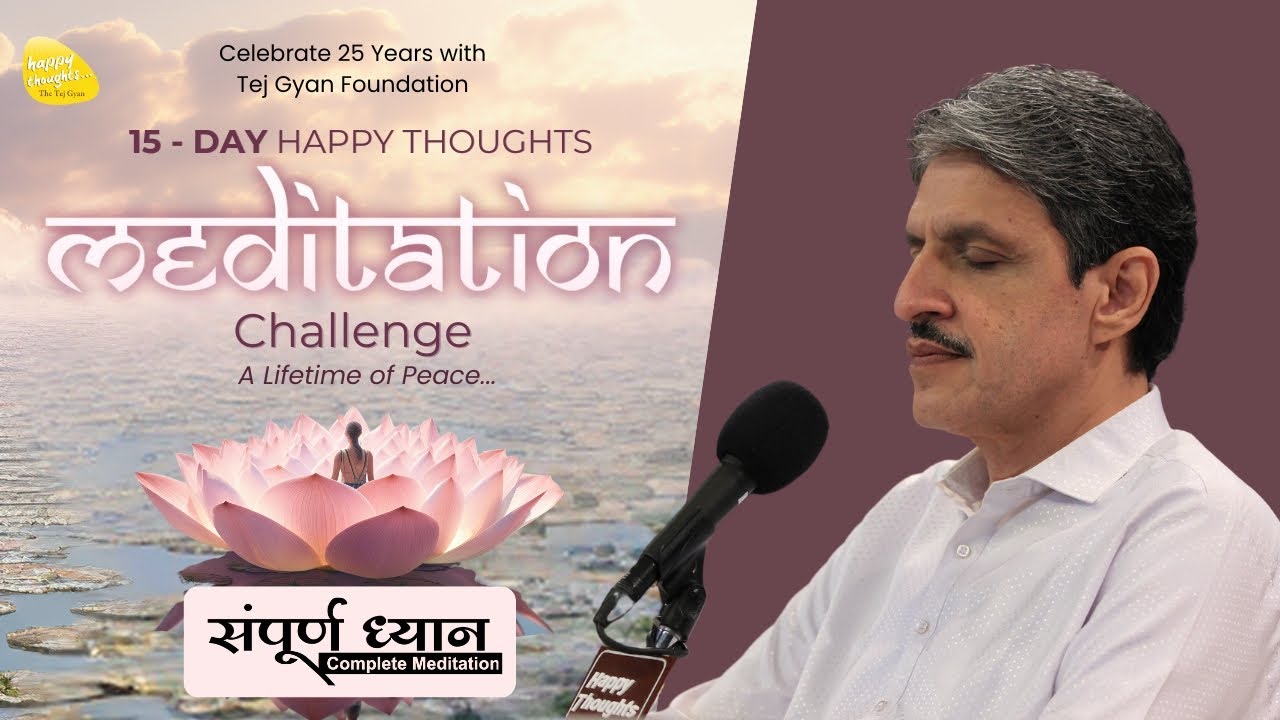Guided Meditation to Quiet and Tame the Monkey Mind
Summary
TLDRThis guided meditation aims to help listeners tame their 'monkey mind' by quieting their thoughts. The narrator guides listeners to relax, focus, and clear their minds through deep breathing and listening to calming music. They encourage acknowledging thoughts without resistance and letting them drift away like clouds. The goal is to achieve a state of presence, being fully awake yet not consumed by thoughts. Regular practice is emphasized for better control over mental activity and daily clarity.
Takeaways
- 🐒 **Understanding Monkey Mind**: Recognizing the hyperactive, restless nature of the mind, often symbolized as a monkey jumping from thought to thought.
- 🧘♀️ **Purpose of Meditation**: Meditation is introduced as a tool to quiet the mind, relax, focus, and clear the head for daily tasks and opportunities.
- 🚫 **Thought Acceptance**: During meditation, it's acknowledged that thoughts will arise and the goal is not to eliminate them but to manage them.
- 🌬️ **Breath Focus**: Focusing on breath is a technique to help center attention and bring awareness back during meditation.
- 🎶 **Music as a Mantra**: Using music as a mantra to ride the wave of sounds, which can assist in maintaining focus and quieting the mind.
- 🌤️ **Thought Drift**: When thoughts come, the instruction is to acknowledge them and let them drift away like clouds in the sky.
- 🧘♂️ **Presence and Stillness**: The aim is to be present and still, awake but not consumed by thoughts, which is the essence of meditation.
- 🔔 **Guided Prompts**: The script offers periodic prompts to refocus if the mind wanders, emphasizing the practice aspect of meditation.
- 🌿 **Observing Thoughts**: The true self is described as the observer of thoughts, encouraging a detached observation to let thoughts pass.
- 🌟 **Progress and Practice**: Meditation is a practice that improves with repetition, leading to greater clarity, presence, and control over mental activity.
- 🌈 **Carryover Effect**: The calm and focus achieved in meditation can be carried throughout the day, enhancing daily life.
Q & A
What is the 'monkey mind' referred to in the script?
-The 'monkey mind' is a metaphor for a restless, busy, and constantly shifting mind that jumps from one thought to another, similar to a hyperactive chimp swinging from branch to branch.
What is the purpose of the guided meditation in the script?
-The purpose of the guided meditation is to help listeners tame their 'monkey mind' by quieting their thoughts, relaxing, focusing, and clearing their head.
Is it necessary to have a completely blank mind during meditation according to the script?
-No, the script clarifies that it's not necessary to have a completely blank mind during meditation. The goal is to relax, clear the mind, and slow down the thought process.
What is suggested as a method to help focus during meditation?
-The script suggests focusing on one's breath, listening intently to the music, or using the sounds as a mantra to help maintain focus.
How should one react when thoughts arise during meditation as per the script?
-When thoughts arise, one should acknowledge them without resistance and let them drift away like clouds in the sky, then return focus to relaxation or the sound.
What does the script mean by 'being present'?
-In the context of the script, 'being present' means being fully awake and aware without being consumed by thoughts, experiencing the current moment without distraction.
What is the role of the observer in the meditation process as described in the script?
-The observer is the true essence of oneself, separate from the thoughts. The script encourages being the observer to let thoughts move away and return to the center of calm and presence.
How does the script define success in meditation?
-Success in meditation is defined by the script as the ability to quiet the mind and achieve a state of calm, relaxed, and quiet presence, regardless of the level of success one perceives.
What is the benefit of regular meditation practice according to the script?
-Regular meditation practice helps in achieving clarity, presence, and focus not only during meditation but also throughout the day, making it easier to quiet the 'monkey mind'.
What should one do after the meditation session as suggested by the script?
-After the meditation session, one should slowly open their eyes, take a deep breath, roll their shoulders, and stretch out their limbs before moving on to the next activity.
How does the script encourage listeners to continue practicing meditation?
-The script encourages listeners to continue practicing meditation by reminding them that it's a skill that improves with practice and that they can return to the recording anytime they need to tame their 'monkey mind'.
Outlines

Cette section est réservée aux utilisateurs payants. Améliorez votre compte pour accéder à cette section.
Améliorer maintenantMindmap

Cette section est réservée aux utilisateurs payants. Améliorez votre compte pour accéder à cette section.
Améliorer maintenantKeywords

Cette section est réservée aux utilisateurs payants. Améliorez votre compte pour accéder à cette section.
Améliorer maintenantHighlights

Cette section est réservée aux utilisateurs payants. Améliorez votre compte pour accéder à cette section.
Améliorer maintenantTranscripts

Cette section est réservée aux utilisateurs payants. Améliorez votre compte pour accéder à cette section.
Améliorer maintenantVoir Plus de Vidéos Connexes

Reprogram Your MInd Guided Meditation For Success and Abundance

You Are Using The WRONG ORGAN To Manifest From

संपूर्ण ध्यान - Complete Meditation_15 days Meditation challenge #meditation #dhyan #sirshree

Healing Affirmations for Mind Body + Spirit | Listen Daily for Best Results ✨

Tantangan Hari Ke-7 | Meditasi Sadar Nafas | Meditate With Tsamara

WAKTU IDEAL MEDITASI DALAM KESEHARIAN I Menjawab Komen I Bhikkhu Santacitto & Bpk. Aryanto Firnadi
5.0 / 5 (0 votes)
